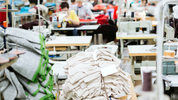From circular economy to carbon removal and sustainable agriculture, here's what we can expect from Bangladesh's sustainable development in 2023.
As the world moves towards a sustainable future, Bangladesh is joining the race with its own set of priorities. The circular economy will take center stage as it offers a practical approach to reducing waste and pollution. With carbon removal technology emerging as a new player in the sustainability game, Bangladesh can make strides in achieving its goal of reducing its carbon emissions by 5% by 2030.
Sustainable transportation can offer a cleaner and more efficient way to transport goods and reduce carbon emissions, while regenerative agriculture, vertical farming, and alternative protein sources can help reduce the environmental impact of agriculture. Additionally, Bangladesh's progress towards a cleaner future is aided by investments in infrastructure for renewable energy. Bangladesh can create a sustainable future by embracing these trends and forecasts, opening up fresh doors for innovation and economic progress.
The concept of a circular economy is all about reducing waste and pollution, keeping products and materials in use, and regenerating natural systems. It’s not just an idealistic concept, but a practical approach towards sustainability. If Bangladesh can make the circular economy work, it can help to reduce waste and pollution which are serious issues in the country. Bangladesh generates around 22,000 tonnes of solid waste every day – a colossal amount.






/Passle/5e4a7839abdfeb03584d01f6/SearchServiceImages/2024-09-04-12-03-56-589-66d84cac0811210c9e078497.jpg)









